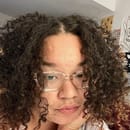In the last decade, artificial intelligence (AI) has advanced incredibly. It transforms numerous industries and helps reshape how we live, work and create. AI has brought us technological advancements like self-driving cars, virtual assistants (like Siri and Alexa!) and language processing systems like ChatGPT. AI has the ability to process an abundance of data, recognize data and patterns and execute complex tasks in just seconds has made it indispensable in fields ranging from medicine to finance to education.
AI models, like ChatGPT and DALL-E, now can create images, generate music and even write content, which pushes the boundaries of what machines can do in the creative fields. However, these specific advancements pose a real threat to human creativity. AI will just continue to evolve and become more advanced, and eventually, it has the potential to completely replace human artists, musicians and writers by automatically generating art, music and film in seconds. Should we let these machines take over human creativity, or should we draw a line to protect a unique human trait?
Benefits of AI
AI has become a major part of our lives, offering immense practical benefits that we have come to rely on. In the finance and manufacturing industries, AI helps speed things up, making businesses more efficient by predicting trends and executing effective workflows. In healthcare, AI can now assist with diagnosing diseases, predicting patient outcomes and even helping discover new drugs! AI tools like ChatGPT have started to feel more like an advanced, more accurate version of Google. It helps find more specific information very quickly, and provides instant, tailored responses to whatever you’re searching for! Instead of going through website after website looking for what you need, typing your question into ChatGPT gives you clear and concise answers right away.
For me, ChatGPT has been a real-game changer for studying. Whenever I’m confused about something, ChatGPT gives me accurate answers that I don’t need to fact-check across multiple different websites. Having a personalized and interactive search engine like ChatGPT is useful when you need help with anything. Best part is that ChatGPT doesn’t just give me generic explanations. It breaks down complex information into simple and consistent sections, so studying difficult topics has become so much easier!
AI’s Threat to Creativity
AI can already generate images, stories and music with tools like DALL-E, ChatGPT and AI music composers. While this is incredibly impressive, this poses a significant threat to the very essence of human creativity. Now, we see AI generated art pieces that are realistic. For example, AI can write short stories or essays that feel so genuine that they may as well have been written by professional authors. If AI continues at this advanced rate, in 20 or 30 years, it’s very possible that we could see AI completely taking over industries like music, art, film, TV and literature. Just imagine it. A future where movies and TV shows are created through AI-generated people as characters. Scripts written by AI and music composed by AI as well; all of this made without a single human input. The creativity that we value so much, the personal connections we make with an artist’s work, has the potential to be lost to machines.
Ultimately, we can’t let this happen. Novels, art, music and entertainment are beloved and appreciated in society because of the immense talent, hard work and soul that humans pour into them. The uniqueness of human creativity; pulling from personal experience, emotion and perspectives; can’t be replaced by emotionless and brainless AI, no matter how advanced it gets. We appreciate not only the final product, but also the journey that artists take to bring their ideas, thoughts and visions to life. Creativity is one of the most beautiful and defining traits of humanity. The world would truly lose something irreplaceable if we allowed AI to fully take over creative industries. The connection that creators and audiences have is so powerful because it’s born from the soul, and we can’t let a mindless robot replace that.
In my opinion, AI advancements in fields like finance, manufacturing and healthcare aren’t as much of a threat because these areas deal with concrete answers. Whether it’s calculating market trends, optimizing production or diagnosing diseases, these industries rely on clear, objective solutions. AI can process massive amounts of data and make precise calculations, making it a very efficient tool for those fields. There’s little room for creativity in those sectors, things are either right or they’re wrong. AI helps without fundamentally changing the nature of the work.
On the other hand, creative industries like art, music and writing are literally built on subjectivity and personal expression, which cannot be boiled down to just being right or being wrong. Art is all about sharing human experiences, feelings and perspectives. If AI takes over these, it risks losing the immense emotional depth and human connection that makes creativity so special. In these fields, AI could diminish what makes human creativity so valuable, and its ability to resonate with people in a way that no algorithm ever could.


